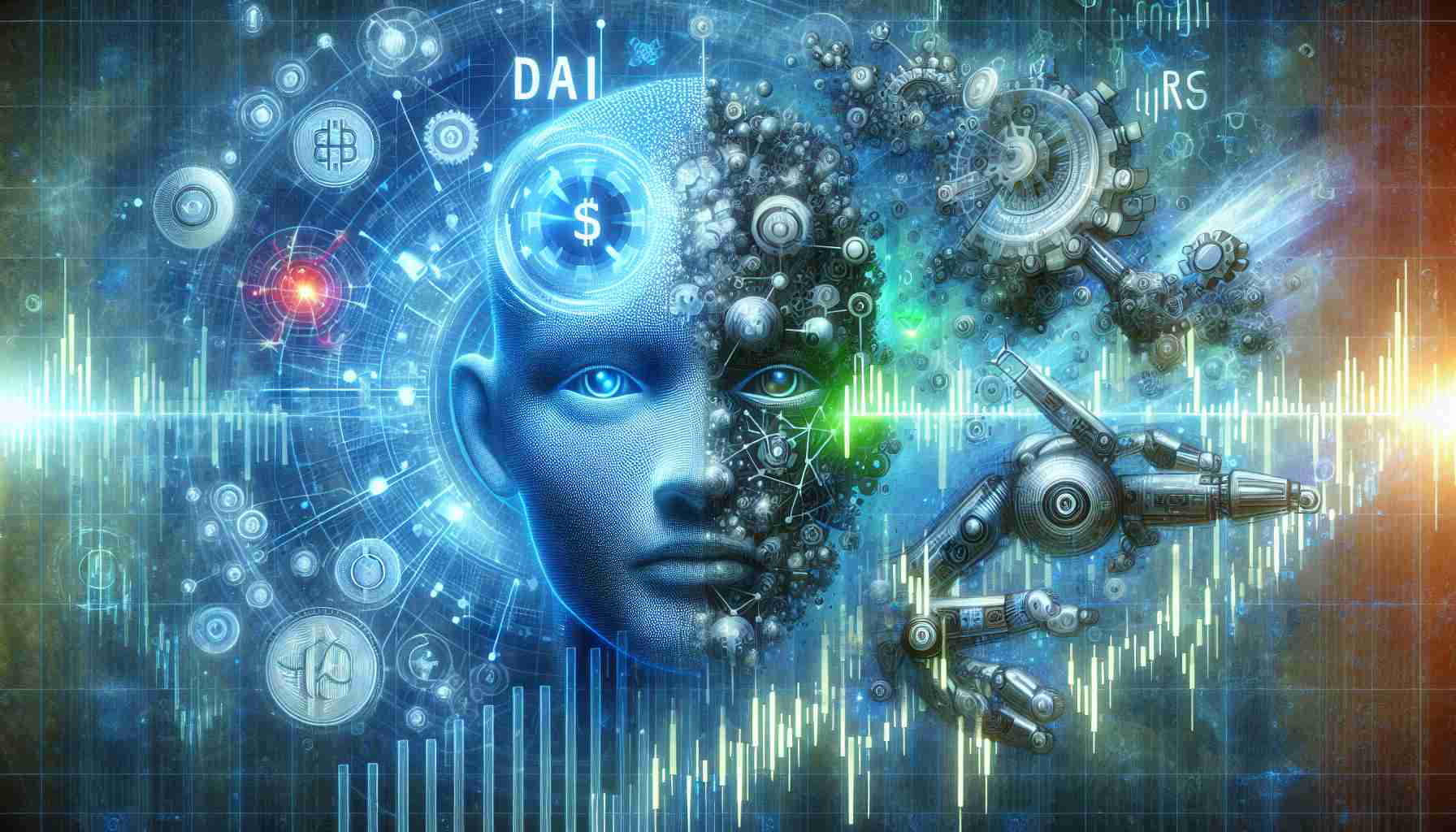Investors and analysts are closely watching a groundbreaking development in financial markets: the integration of artificial intelligence into trading strategies for the DAX Performance-Index, Germany’s leading stock market index. As AI technologies advance, they hold the potential to redefine trading patterns and decision-making processes for this influential index.
The DAX, which comprises 40 major German blue-chip companies, has traditionally been the domain of expert analysts and traders armed with years of market experience. However, the advent of AI-driven tools introduces a new era of precision and speed. Machine learning algorithms can now analyze vast amounts of market data in real-time, identifying trends and patterns that human analysts might miss. This capability offers the promise of more informed trading strategies and potentially higher returns.
Nevertheless, this technological leap forward is not without its challenges. There is growing concern over the autonomy of these AI systems and the ethical implications of their rapid decision-making abilities. Could over-reliance on AI lead to unforeseen market volatility? Regulators are keenly examining these issues, considering how best to incorporate safeguards without stifling innovation.
Looking ahead, the fusion of AI and the DAX Performance-Index could herald significant changes in how trading is conducted. For investors, staying informed about these developments will be crucial in navigating the evolving landscape of stock market investments. As AI continues to shape the future of finance, its impact on the DAX will be an essential story to watch.
The Environmental and Social Impact of AI-Driven Trading on the DAX Performance-Index
The integration of artificial intelligence into trading strategies for the DAX Performance-Index, a key component of Germany’s financial market, signifies a pivotal shift not only in financial trading but also across environmental and social domains. While on the surface, this evolution appears primarily financial, the ripple effects extend far beyond the confines of the stock market, influencing the environment, humanity, and even the global economy.
Environmental Implications
AI-driven trading systems for the DAX Performance-Index could indirectly impact the environment through energy consumption associated with the technology. Running complex machine learning algorithms requires significant computational power, leading to increased energy usage. Unless this energy demand is met by renewable sources, it could result in elevated carbon emissions. On the flipside, AI systems can facilitate more efficient energy trading and management strategies among DAX-listed companies, encouraging sustainability practices. By identifying and promoting investment into green technologies, AI can potentially guide capital towards eco-friendly ventures and away from more harmful activities.
Impact on Humanity and Society
Humanity stands on the cusp of significant change as AI technologies permeate financial markets like the DAX. The deployment of machine learning algorithms replaces traditional roles fulfilled by human analysts, demanding a shift in skill sets. There might be reduced demand for human labor in some areas, resulting in job displacement. However, as these systems evolve, new opportunities could emerge in sectors involving AI oversight, maintenance, and ethics.
Furthermore, the precision and speed of AI in trading could democratize investment opportunities, granting broader access to market insights that were once the province of elite investment firms. This transparency and inclusivity could empower individual investors, altering the landscape of wealth distribution.
Economic and Global Connections
The economic implications of AI-driven trading are profound. By optimizing strategies, AI could lead to increased returns, benefiting investors and boosting economic growth. However, this also risks exacerbating inequality if only a few corporations or individuals harness these technologies effectively.
Globally, the integration of AI in markets like the DAX positions Germany as a leader in financial innovation, potentially prompting other countries to follow suit. This massive trend could standardize AI usage in stock markets worldwide, fostering international economic collaboration or competition based on AI capabilities.
Looking to the Future
The fusion of AI with the DAX Performance-Index is a microcosm for potential future scenarios across multiple domains. While the prospects for financial gain and efficiency are appealing, the broader consequences of AI trading are complex. Ensuring that this transition benefits the environment, society, and economies broadly demands strategic foresight, stringent ethical guidelines, and sustainable practices.
Investors who understand these multifaceted impacts will be better positioned to navigate the rapidly changing financial landscape. The future of humanity may very well be interwoven with how we manage the intricate balance between technological advancement and its holistic effects on our world.
Could AI Signal a New Era for the DAX Performance-Index?
The integration of artificial intelligence (AI) into trading strategies for the DAX Performance-Index, Germany’s primary stock market gauge, is poised to bring transformative changes that could redefine market dynamics.
Features and Innovations
AI and machine learning are revolutionizing trading by offering unparalleled precision and speed. These technologies can process vast datasets in real-time to detect subtle patterns and trends, potentially enhancing the accuracy of trading decisions. AI’s capacity to execute trades swiftly based on complex algorithms means that trading strategies can be optimized for better performance and yield.
Security Aspects
With AI-driven strategies, there’s an emphasis on cybersecurity as automated systems must be safeguarded against potential breaches. Enhancing digital security measures will be critical to ensure the integrity of trading data and the reliability of autonomous systems.
Ethical Concerns
The rapid decision-making ability of AI poses ethical questions. The potential for these systems to operate with minimal human intervention stirs debates about accountability and the moral ramifications of automated trading. Market participants and regulators need to collaborate to establish ethical guidelines that ensure fair play without hindering innovation.
Limitations and Challenges
While AI offers promising advantages, its reliance also presents challenges. There’s a risk of market volatility if AI systems malfunction or make erroneous decisions based on flawed data inputs. Additionally, over-dependence on AI could stifle human analytical skills and creativity.
Sustainability and Future Predictions
The sustainable implementation of AI in trading involves balancing technological benefits with ecological and economic considerations. As AI becomes more integrated into financial markets, it’s expected to improve efficiency, potentially leading to a reduction in resource consumption. It’s predicted that AI’s role in trading will become increasingly prominent, powering more advanced decision-making processes.
Market Analysis and Trends
Current market trends indicate a growing adoption of AI in financial markets globally. The shift towards algorithmic trading is accelerating, particularly for major indices like the DAX. AI’s evolving role in these markets could lead to the development of more sophisticated investment products and strategies.
Investors and market participants must stay abreast of these developments to harness AI’s full potential while navigating its inherent complexities. It’s clear that AI’s impact on the DAX Performance-Index will be a pivotal narrative in the future of global finance.
For further insights into the integration of AI in trading and finance, consider visiting Deutsche Börse’s resources for detailed information on the DAX and its innovations.



















